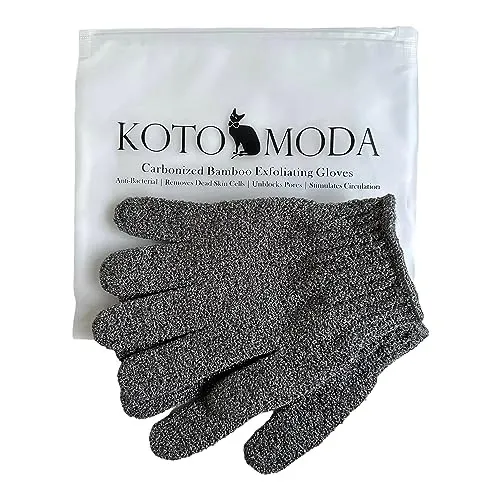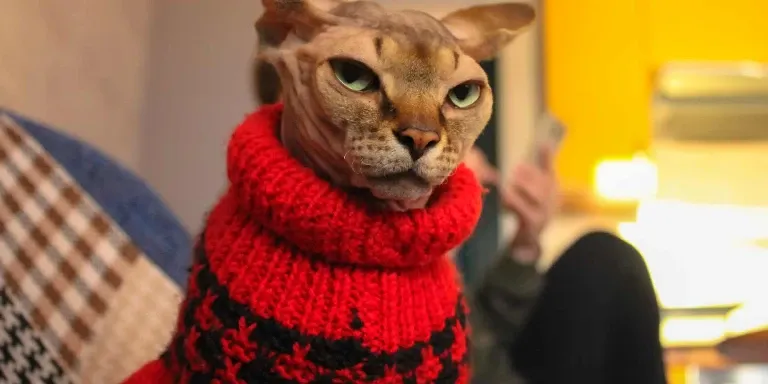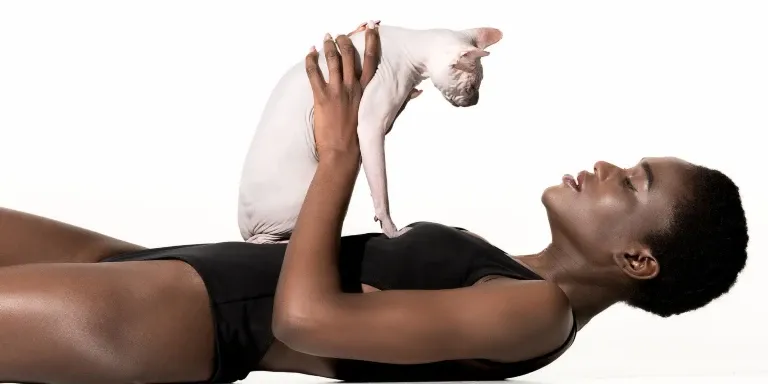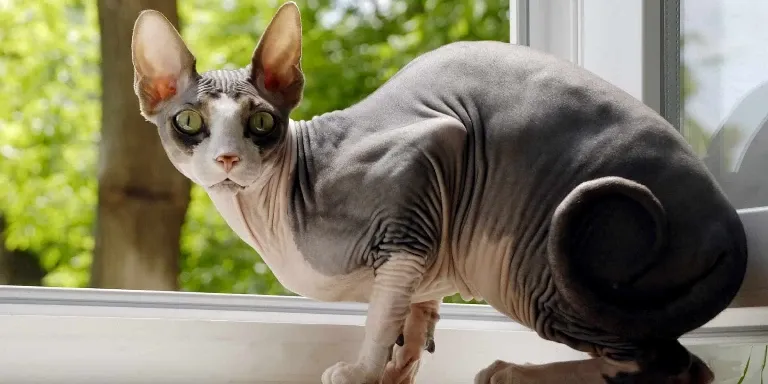The Best Fluffy Pancakes recipe you will fall in love with. Full of tips and tricks to help you make the best pancakes.

Imagine you are a traveler wandering down a winding road. You come across a unique and striking creature, a cat unlike any you have ever seen. Its hairless body and wrinkled skin catch your eye, and you feel a sudden urge to take it home with you.
But before you make a hasty decision, it’s important to consider the reality of owning a sphynx cat. While these feline beauties may seem tempting, there are several reasons why they may not be the best fit for you.
Some reasons why not to get a Sphynx cat include: they require frequent bathing due to the lack of fur, they are prone to skin issues and need regular veterinary check-ups, they are high-energy and require lots of playtime and attention, they can be expensive to purchase and maintain, and they are not hypoallergenic despite being hairless.
From their high maintenance needs to their short lifespan, owning a Sphynx cat requires a significant commitment. In this article, we will explore the various reasons why you may want to think twice before bringing a Sphynx cat into your home.
So, before you take the plunge, take a moment to consider whether a Sphynx cat is truly the right choice for your lifestyle.
Sphynx Cats Require a Lot of Maintenance
Taking care of a Sphynx cat can feel like constantly bathing a tiny, wrinkly, and demanding baby. These cats require a lot of maintenance, especially when it comes to their skin care routines.
Sphynx cats have no hair, which means that they have no natural protection from the sun, cold weather, or other elements. Because of this, they need daily grooming to keep their skin clean and healthy. This can involve wiping them down with a damp cloth, giving them regular baths, and applying special lotions or oils to their skin to keep it moisturized.
In addition to their daily grooming needs, Sphynx cats can also present possible behavioral challenges and training needs. These cats can be quite demanding and may require a lot of attention from their owners. They’re also known to be very vocal, and may meow constantly to get your attention.
Additionally, Sphynx cats can be prone to behavioral issues such as scratching or biting, which may require patience and training to correct. All in all, while Sphynx cats can be loving and affectionate pets, they do require a lot of maintenance and attention from their owners.
They Can Be Expensive
If you’re considering getting a Sphynx cat, it’s important to take into account the potential expenses. Adoption fees for this breed can range from $800 to $1500, and that’s just the beginning.
Sphynx cats have a higher risk of health problems, which means more trips to the vet and potentially expensive treatments. Additionally, their unique physical needs require specialized care and grooming, which can add up in cost over time.
Note: Contractions have been used to make the text more conversational.
Cost of Adoption
Adopting a Sphynx cat can be quite expensive due to their rarity and high demand, so it’s important to consider the financial commitment before bringing one home.
In addition to the cost of purchasing a Sphynx from a breeder, there are also adoption fees to consider. The adoption process for Sphynx cats can be rigorous, and breeders may have strict breeding regulations that drive up the cost of adoption.
If you’re considering adopting a Sphynx cat, it’s important to do your research and find a reputable breeder or rescue organization. Some breeders may charge thousands of dollars for a Sphynx kitten, while others may offer adult cats for a lower price. Adoption fees can also vary depending on the organization and the cat’s age and health.
Make sure to factor in ongoing expenses such as food, litter, veterinary care, and grooming when calculating the total cost of owning a Sphynx cat. Despite the high cost, many Sphynx owners find that the love and joy they bring to their lives is well worth the investment.
Veterinary Expenses
One way to ensure your Sphynx’s health and well-being is by budgeting for regular veterinary expenses. While Sphynx cats are generally healthy, they may be prone to certain health issues such as skin problems, respiratory issues, and heart disease.
Regular check-ups with a veterinarian can help catch any potential issues early on and prevent them from becoming more serious and expensive to treat. In addition to regular check-ups, it’s important to consider insurance coverage for your Sphynx.
Many pet insurance companies offer coverage for cats, including coverage for routine care, accidents, and illnesses. By budgeting for veterinary expenses and considering insurance coverage, you can help ensure that your Sphynx receives the best care possible without breaking the bank.
Specialized Care
To ensure your Sphynx receives the best possible care, you may want to consider specialized veterinary services. Sphynx cats require a unique approach to grooming due to their lack of fur. Their skin is susceptible to dirt and oils, meaning they need regular baths and ear cleanings. Additionally, their wrinkles require careful attention to prevent infection.
Regular check-ups with a veterinarian who’s familiar with the breed’s specific needs can help ensure your Sphynx stays healthy and happy. In addition to grooming requirements, potential health issues are something to consider before getting a Sphynx cat. Due to their hairless nature, they’re susceptible to sunburn and hypothermia, which can lead to serious health problems. They’re also prone to respiratory issues and heart problems.
Specialized veterinary care can help catch these health issues early and provide the necessary treatment to keep your Sphynx healthy. While they may be a unique and interesting breed, it’s important to consider the potential specialized care they require before bringing one into your home.
They Have Unique Personalities
When considering a Sphynx cat, it’s important to understand their unique personality traits. These cats have high energy levels and require plenty of attention and playtime to keep them happy and healthy.
Additionally, Sphynx cats are known to be sensitive to their environment, so it’s important to provide them with a comfortable and secure living space.
High Energy Levels
You’ll definitely feel the burn trying to keep up with a Sphynx cat’s high energy levels, so don’t underestimate their ability to keep you on your toes. These cats are known for their playful and inquisitive nature, which can make them a handful for those who are not prepared for their boundless energy.
To keep a Sphynx cat happy and healthy, you’ll need to provide them with plenty of opportunities to exercise and play. If you’re considering getting a Sphynx cat, it’s important to understand their exercise requirements. These cats need at least 30 minutes of dedicated playtime each day, and they thrive in homes where they have access to safe spaces to climb, run, and play.
Some recommended training techniques for Sphynx cats include teaching them to use puzzle feeders, providing them with interactive toys, and engaging them in games of chase and hide-and-seek. By understanding and meeting the exercise needs of a Sphynx cat, you can provide them with a happy and fulfilling life while also avoiding the stress that can come from trying to keep up with their high energy levels.
Need for Attention
If you’re considering getting a Sphynx cat, it’s important to understand that they have a strong need for attention. These cats crave social interaction and love to be around their humans. However, if they don’t receive enough attention or socialization, they can develop separation anxiety and become destructive.
To prevent separation anxiety in Sphynx cats, it’s crucial to socialize them from a young age. This means exposing them to different people, animals, and environments so that they learn to feel comfortable in different situations.
Additionally, providing your cat with plenty of toys and activities can help keep them entertained and prevent destructive behavior when you’re not around. Keep in mind that Sphynx cats are not a good fit for people who are away from home for long periods of time, as they require a lot of attention and interaction to thrive.
Sensitivity to Environment
To truly understand the Sphynx, it’s essential to recognize their sensitivity to the environment. These cats can be easily affected by changes in temperature, humidity, and air quality. If you’re considering getting a Sphynx cat, you need to be mindful of the environmental factors that can impact their wellbeing.
One of the main things to consider is your lifestyle choices. For example, if you live in an area with harsh winters or summers, your Sphynx may struggle to regulate their body temperature. Similarly, if you live in a polluted area, your cat’s sensitive respiratory system may be affected.
It’s important to create a safe and comfortable environment for your Sphynx, which may require some lifestyle adjustments on your part. By taking these factors into consideration, you can ensure that your Sphynx is happy and healthy in their home.
They Are Not Hypoallergenic
Despite their hairlessness, Sphynx cats can still trigger allergic reactions in sensitive individuals due to the presence of dander and saliva. While many people may assume that hairless cats are hypoallergenic, this is not necessarily true.
In fact, many people with allergies to cats may still experience symptoms such as sneezing, itching, and congestion around Sphynx cats. One reason for this is that cats produce a protein called Fel d 1, which is found in their skin, saliva, and urine. This protein is a common allergen for many people, and it can be spread through contact with the cat’s skin or fur, as well as through the air as the cat grooms itself.
While Sphynx cats may produce less of this protein due to their lack of fur, they still produce it, and it can still cause allergic reactions in some individuals. Therefore, if you have allergies to cats, it is important to consider this before getting a Sphynx cat as a pet.
They Can Be Noisy
If you’re considering getting a Sphynx cat, it’s important to know that they can be quite vocal. These cats are known for their loud meows, chirps, and other noises, which may not be ideal for those who prefer a quieter home.
Additionally, Sphynx cats are extremely playful and require plenty of stimulation to stay happy and healthy. If you’re up for the challenge of keeping up with their energetic nature, a Sphynx cat may be the perfect pet for you.
Vocalizations
Sphynx cats have a distinct and often loud meow that can be heard throughout the house. If you’re looking for a quiet and peaceful home, a Sphynx cat may not be the best fit for you.
Their vocalizations can range from meows to yowls, and they often make these sounds to get attention or express their emotions. Some Sphynx cats may even become overly vocal if they don’t receive enough attention or if they’re feeling stressed.
While training techniques may help reduce the frequency of vocalizations, it’s important to note that Sphynx cats are naturally more vocal than other breeds. Additionally, they can be more sensitive to sounds and may react strongly to even minor disturbances.
If you have a busy household or live in an apartment building, having a Sphynx cat may not be the best choice. Before getting a Sphynx cat, it’s important to consider your lifestyle and whether you’re prepared to handle a cat that may be more vocal than you’re used to.
Playful Behavior
You’ll love the playful antics of a Sphynx, as they’re known to be little balls of energy that will keep you on your toes. They love to play, and will often initiate playtime by running around the house, chasing toys, and even playing fetch. You’ll find that they’re always up for a game, and their playful nature will keep you entertained for hours on end.
However, with all this energy comes a need for proper training techniques and socialization process. Sphynx cats are intelligent and curious creatures, and they need to be trained to channel their energy into positive activities. It’s important to establish boundaries and teach them what is acceptable behavior, so that they don’t become destructive or overly demanding.
Additionally, proper socialization from a young age is crucial. It helps them learn to interact with people and other animals in a positive way. With the right training and socialization, you’ll have a fun-loving, playful Sphynx who will bring joy to your life every day.
Need for Stimulation
To keep your furry friend happy, it’s important to provide them with plenty of toys and activities that stimulate their playful nature. This is especially true for Sphynx cats, who have a high need for stimulation. Without it, they can become bored and destructive, leading to behavior problems and unhappy cats.
So, what can you do to keep your Sphynx cat entertained? First, finding appropriate toys is key. Sphynx cats are known for their love of interactive toys, such as puzzle feeders and wand toys. These types of toys not only provide mental stimulation, but also allow for a bonding experience between you and your cat.
Additionally, socialization needs are important for Sphynx cats. They are highly social creatures and thrive when given the opportunity to interact with their human and feline counterparts. Playtime with other cats or supervised playtime with humans can provide the socialization and stimulation that your sphynx cat craves.
They Are Not Suitable for All Homes
Not every household is a good fit for owning a hairless cat, as statistics show that Sphynx cats require a lot of attention and care. Before deciding to get one, it’s important to evaluate your lifestyle and living situation to determine if you can provide the necessary environment for your pet.
Suitable housing is a crucial factor, as Sphynx cats are sensitive to temperature changes and need a warm and comfortable living space. They also need a lot of room to move around and play, so living in a small apartment may not be ideal for them.
Another important factor to consider is lifestyle compatibility. Sphynx cats are known for their high energy levels and need for stimulation, so if you have a busy lifestyle or are not able to provide enough playtime and attention, a Sphynx cat may not be the best choice for you. They also require regular grooming and bathing, which can be time-consuming and may not be suitable for owners with busy schedules.
It’s important to carefully consider all of these factors before deciding to get a Sphynx cat, as they require a lot of care and attention to thrive in a home environment.
They Have a Short Lifespan
If you’re considering getting a Sphynx cat, it’s important to understand that they have a relatively short lifespan compared to other breeds. On average, a Sphynx cat will live between 8 and 14 years, which is significantly shorter than the lifespan of many other domestic cats.
Additionally, Sphynx cats are prone to certain health concerns that can impact their quality of life and emotional well-being.
Average Lifespan
You’ll want to keep in mind that Sphynx cats have an average lifespan of around 8-14 years, which may be shorter than other breeds. While some factors affecting lifespan, such as genetics and environment, can’t be controlled, there are certain measures you can take to help your Sphynx live a longer, healthier life.
One common health issue among Sphynx cats is dental problems. Since they lack fur, their saliva can accumulate on their skin and cause skin irritation, which may lead to excessive grooming and tooth decay. Regular dental check-ups and cleanings, as well as proper dental care at home, can help prevent these issues and ensure your Sphynx’s overall health.
Additionally, providing a balanced diet, regular exercise, and a stress-free environment can also contribute to a longer lifespan for your Sphynx.
Health Concerns
To keep your hairless feline friend healthy and happy, it’s important to stay aware of potential health concerns and provide proper care.
Sphynx cats have some genetic predispositions that you should be aware of, such as hypertrophic cardiomyopathy, a condition that affects the heart muscle. Regular check-ups with your veterinarian can help catch any potential issues early on, and a balanced diet can also contribute to your cat’s overall health.
Another important factor to consider when owning a Sphynx cat is their grooming requirements. While they may not have fur to groom, they still require regular baths and ear cleanings to maintain their skin health. Additionally, they are prone to skin irritations and sunburn, so it’s important to keep them indoors or provide them with sun protection when spending time outside.
By staying vigilant and providing proper care, you can help keep your Sphynx cat healthy and happy for years to come.
Emotional Impact
Now that we’ve talked about the health concerns that come with owning a Sphynx cat, let’s explore the emotional impact that they can have on their owners.
While these cats can be incredibly affectionate and loving, they also require a lot of attention and care. This can be overwhelming for some people and may lead to feelings of stress, anxiety, and even depression.
If you’re considering getting a Sphynx cat, it’s important to think about how you’ll cope with the emotional demands that come with pet ownership. It’s a good idea to explore coping mechanisms like meditation, exercise, or talking to a therapist.
Additionally, seeking support from others who have experience with Sphynx cats can be incredibly helpful. Joining online communities or attending local meet-ups can provide you with a network of people who can offer advice, support, and understanding.
Ultimately, it’s important to be honest with yourself about your emotional capacity and to make sure that you’re ready for the challenges that come with owning a Sphynx cat.
Alternative Cat Breeds to Consider
If you’re looking for a feline companion with a unique appearance, the Devon Rex or Cornish Rex may be worth considering. These breeds have fur, unlike the Sphynx, but their coats are curly and soft, giving them a distinct appearance. The Devon Rex is known for being mischievous and playful, while the Cornish Rex is often described as intelligent and affectionate.
In addition to these breeds, there are other felines with unique personalities and traits worth considering. The Siamese is a popular breed with a distinctive ‘talkative’ nature and striking blue eyes. The Bengal, with its wild-looking markings and energetic personality, is another option for those seeking a more active companion. Lastly, the Scottish Fold is a charming breed known for its adorable folded ears and sweet temperament.
Ultimately, there are many alternatives to the Sphynx that can provide just as much love and companionship.
What Are Some Common Drawbacks of Owning a Sphynx Cat?
The cost of Sphynx cat ownership can be a drawback for some due to their high initial price and potential for expensive health care needs. Additionally, their unique grooming requirements may pose a challenge for some owners. Their energetic and mischievous nature may also require a lot of attention and supervision.
Conclusion
So, you’re considering getting a Sphynx cat. While they may be unique and adorable, there are several reasons why you might want to think twice before bringing one home.
Firstly, Sphynx cats require a lot of maintenance. They need regular baths to keep their skin healthy, and their ears and claws must be cleaned frequently. Additionally, they can be quite expensive to care for, with veterinary bills and high-quality food adding up quickly.
Interestingly, did you know that Sphynx cats have a relatively short lifespan compared to other cat breeds? On average, they only live for about 8-14 years. This is something to consider when making a long-term commitment to a furry friend.
Ultimately, there are many factors to consider before getting a Sphynx cat. While they may be lovable and unique, their high maintenance needs, cost, and short lifespan may make them a less than ideal choice for some pet owners. If you’re still set on getting a hairless feline, be sure to do your research and consider alternative cat breeds that may be better suited for your lifestyle.








